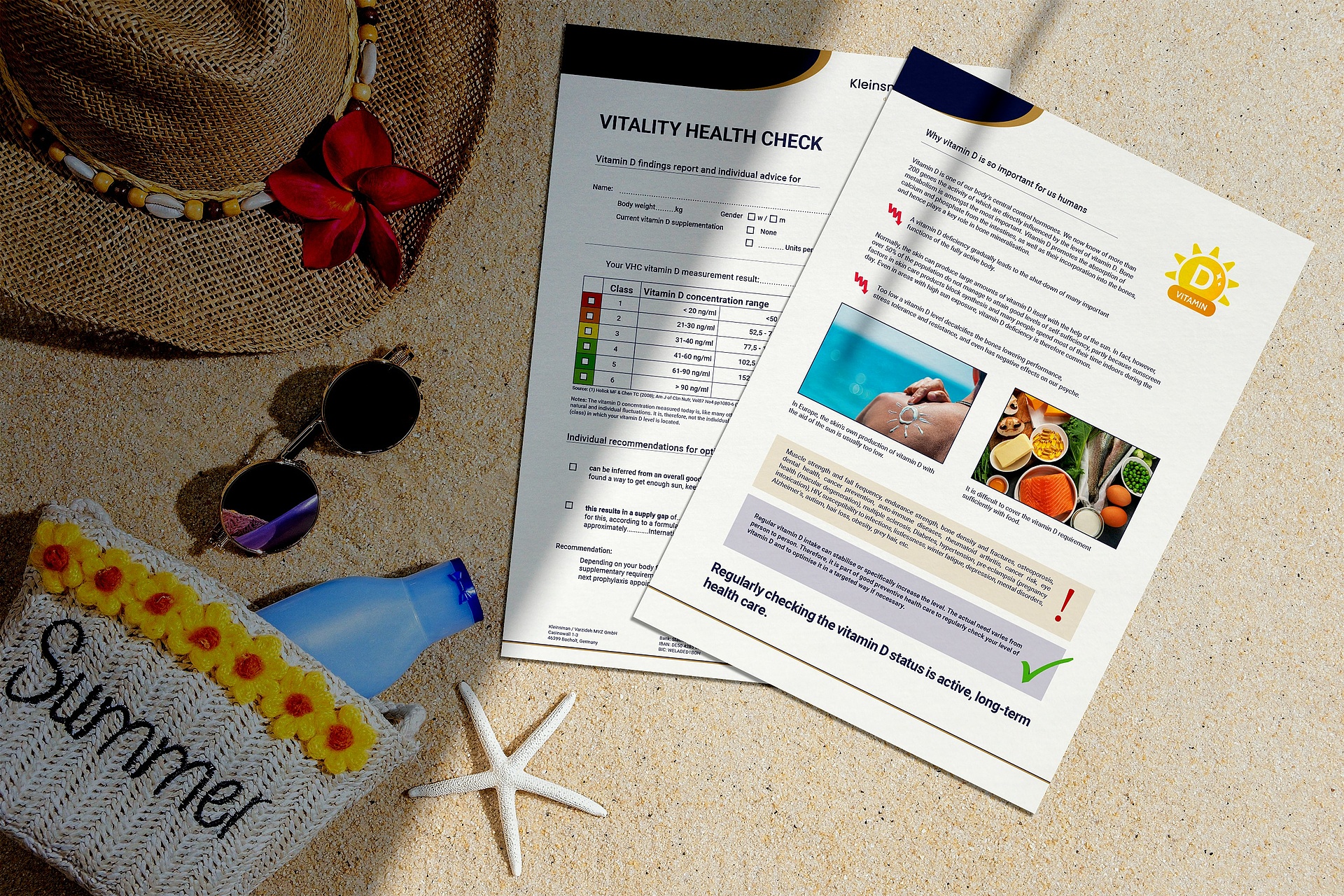
We perform the health check!
Vitamin D, also known as calciferols, is a group of fat-soluble vitamins that come in various forms. Most of our vitamin D needs are met by the body’s own synthesis, and not by food intake. It plays an important role in regulating calcium and phosphate levels, as well as in bone metabolism.
The skin produces its own vitamin D with the help of UV-B rays. So in other words, our vitamin D production is reliant on us getting enough sunlight.
In fact, more than 50% of the population fail to generate enough vitamin D on their own. Sunscreens in skin care products, for example, block vitamin D synthesis. Additional reasons for low vitamin D synthesis include: remaining in closed rooms for a long time, use of cosmetics, old age, being bedridden.
Persistent severe vitamin D deficiency leads to demineralization of the bones, which manifests itself as rickets in children and osteomalacia in adults.
Dentists and dental practitioners can also use the positive influence of vitamin D in implantology and periodontics.
Studies show that taking vitamin D and calcium has a positive effect on supportive periodontal therapy (SPT).
In implantology, more successful therapy and improved osseointegration of implants can be expected.
Vitamin D also influences: Muscle strength and frequency of falls, endurance, bone density and bone fractures, osteoporosis, dental health, cancer prevention, autoimmune diseases, rheumatoid arthritis, cancer risk, eye health (macular degeneration), multiple sclerosis, diabetes, high blood pressure, pre-eclampsia (pregnancy intoxication), HIV, susceptibility to infections, lack of motivation, winter fatigue, depression, mental disorders, Alzheimer’s disease, autism, hair loss, obesity, gray hair...
Regular vitamin D intake can stabilize and specifically increase levels.
This is why good healthcare includes regularly checking vitamin D levels and optimizing them if necessary. Would you like your vitamin D levels measured, and would you like one-on-one advice?
If so, please contact our practice team.

